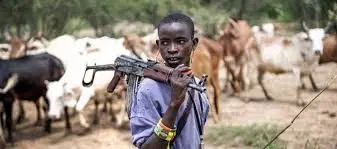
Over 3,190 Killed in 4 Months as State Security Outfits Crumble Under Lack of Arms, Poor Funding
Amid growing insecurity, Nigeria’s regional security outfits — including the widely publicized Amotekun Corps — are struggling to deliver on their promise due to a crippling lack of weapons, operational vehicles, and government support. Despite a whopping ₦214 billion being allocated for local security and defense by 35 states in the 2025 budget, killings, kidnappings, and violence have escalated nationwide, especially in the North Central region.
From herdsmen attacks in Benue to bandit incursions in Zamfara and terrorism in Borno, grassroots security groups remain largely symbolic, with many operating on paper or with crude weapons.
Between January and April 2025, Nigeria witnessed at least 3,190 violent deaths and 2,819 abductions, according to findings by Sunday Vanguard. In rural communities, residents are increasingly vulnerable due to the failure of local and federal law enforcement to curb the violence.
South-West: Amotekun Undermined by Arms Restriction
In Ondo, Osun, Oyo, and Ekiti states, Amotekun corps have made modest progress but face severe constraints. Ondo’s Amotekun Commander, Chief Adetunji Adeleye, revealed the need for advanced tracking technology and weapons. “We put our lives on the line, yet automatic firearms remain restricted,” he said.
His Osun counterpart, Adekunle Omoyele, lamented the corps’ use of inferior pump-action and locally fabricated rifles compared to the AK-47s used by kidnappers. Meanwhile, Oyo’s Amotekun commander, Col. Olayinka Olayanju (retd.), confirmed that although the state boasts 2,500 personnel, the lack of sophisticated arms stifles their performance.
In Ekiti, the security focus also includes the Agro-Marshals, yet they remain unarmed. Officials argue they could be more effective if permitted to carry weapons.
North-Central & North-West: Grim Statistics, Grim Reality
Benue State’s Civil Protection Guards and other outfits operate with limited equipment despite large-scale killings by armed herders. Plateau State’s Operation Rainbow is similarly hampered. A shipment of legally acquired pump-action rifles was recently seized by federal agents, weakening its ability to counter violence.
Sokoto’s 2,000-strong Community Guards, with 150 members per LGA, also lack the firepower needed to confront heavily armed bandits. Informants and lack of trust within communities further complicate their mission.
Other Regions: More Paper Than Power
In Ebonyi and Akwa Ibom, security outfits have been launched with ambitious promises, but without access to firearms, their operations focus on surveillance and intelligence gathering. In Kano, a new task force has been created, but it remains unclear how effective it will be given the state’s rising security threats.
In the volatile North-East, the Civilian Joint Task Force (CJTF) remains the most established, with over 26,000 members across Borno and Yobe. However, the CJTF also faces funding issues and frequent coordination problems with the military, having lost over 1,700 members in a decade of fighting Boko Haram.
Constitutional Dilemma & Federal Roadblocks
A key constitutional challenge remains: security and the right to bear arms are exclusively controlled by the Federal Government. Many governors and local security chiefs argue that without reform and controlled arms access, sub-national security outfits will remain ineffective.
A source in Plateau lamented: “Despite following due process, we were denied access to weapons. The DSS even seized our rifles meant for legal community defense.”



